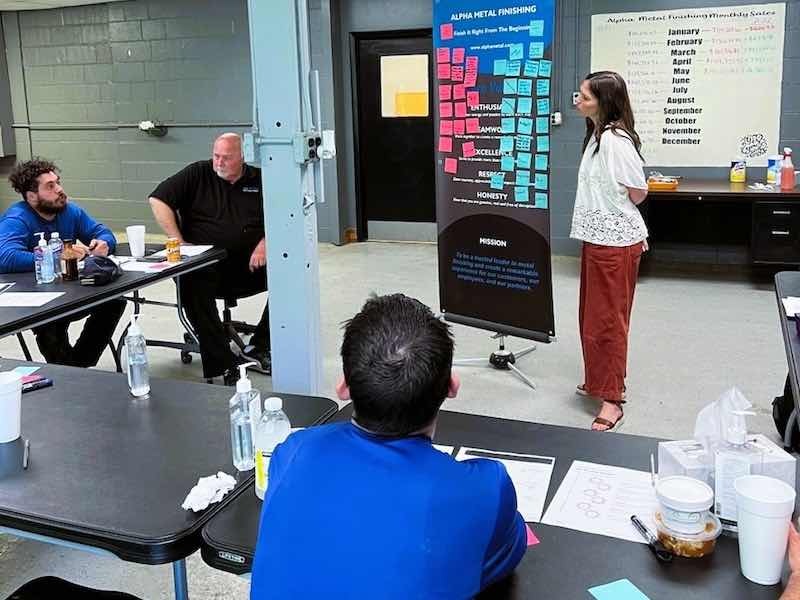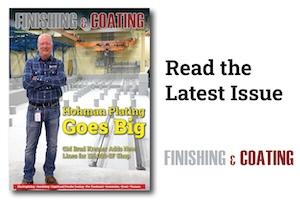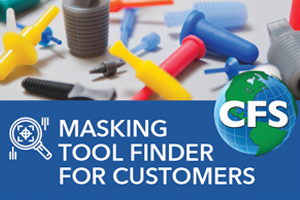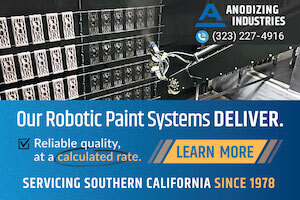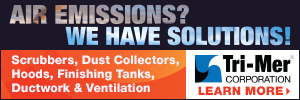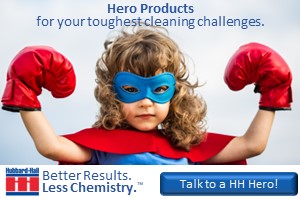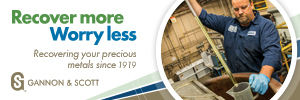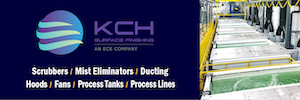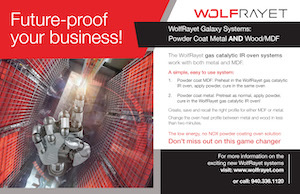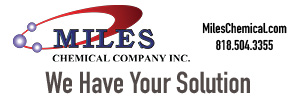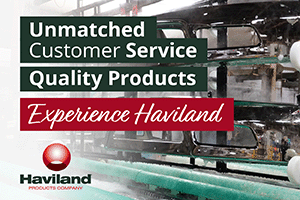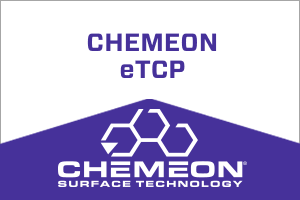It took just four hours in March 2022 for Alpha Metal Finishing’s leadership team to become the unit that owner Greg Wood had always dreamed they would be.
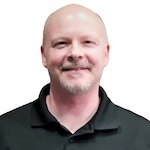 Greg WoodIt was that afternoon when Wood had the Alpha management team hear from a pair of leadership specialists about several topics, but one in particular: trust.
Greg WoodIt was that afternoon when Wood had the Alpha management team hear from a pair of leadership specialists about several topics, but one in particular: trust.
While Wood says his anodizing shop in Dexter, Michigan, has never had a major issue with its managers and staff, it was always something he wanted to do for them, which was to help them function better in their everyday jobs and enjoy what they were doing, too.
And something definitely happened that day in early 2022.
“It was a tipping point for us,” Wood says. “Never before had I observed our team really focus like that, or get my leadership team all on the same page to where we have a working model of how we're going to grow in understanding and building trust.”
‘Psychological Safety’ in the Workplace
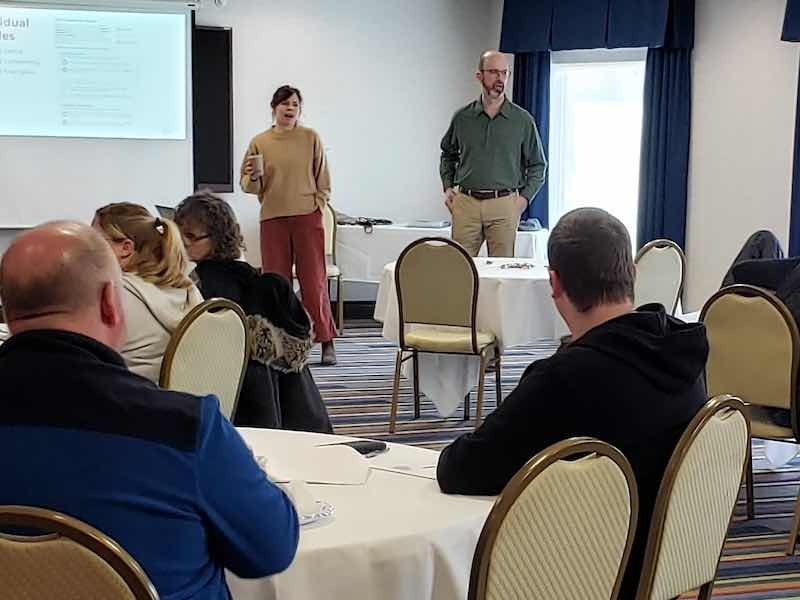 Mike Bowles and Carly Glista from Sonder Leaders have worked with the Alpha Metal Finishing team for several years on leadership and teamwork.When Wood refers to trust, he also includes what some management experts refer to as “psychological safety” in the workplace, where employees, managers, and owners can talk about improving operations without people feeling that fingers are being pointed at them.
Mike Bowles and Carly Glista from Sonder Leaders have worked with the Alpha Metal Finishing team for several years on leadership and teamwork.When Wood refers to trust, he also includes what some management experts refer to as “psychological safety” in the workplace, where employees, managers, and owners can talk about improving operations without people feeling that fingers are being pointed at them.
“The real bottom line for us is how to build trust, how to work together better as a team, how to deal with conflict better, all of that,” says Wood, who admits that his recent efforts to provide leadership to his managers often seemed to fall on deaf ears, possibly because of the way he was giving the direction, as well as his own fatigue from years of owning a plating operation that could be stressful at times.
“I don't want to say I was desperate, but I was pretty close,” says Wood, who took over running Alpha Metal Finishing from his father in 2010. Since then, he has been on a constant churn on reinvesting in equipment, satisfying current customers, dealing with staffing issues as most shops do, and managing day-to-day operations. “I believe Peter Drucker said it well: “Only three things happen naturally in organizations: friction, confusion, and underperformance. Everything else requires leadership.””
“I just felt like I was running out of steam here,” he says. “I was thinking: how are we going to do to get to the next level for our company? What can I do to help my team thrive? And because we're smaller, we don't have some of the resources that larger companies do. A lot of it fell on me. ”
Although Alpha’s incoming production orders increased, Wood says it was a challenge to keep pushing forward.
“With all the disruption going on during the pandemic, it felt like we were taking two steps forward and one step back on most days,” he says. “My original business plans were put on hold.”
Taking the Working Genius Assessment
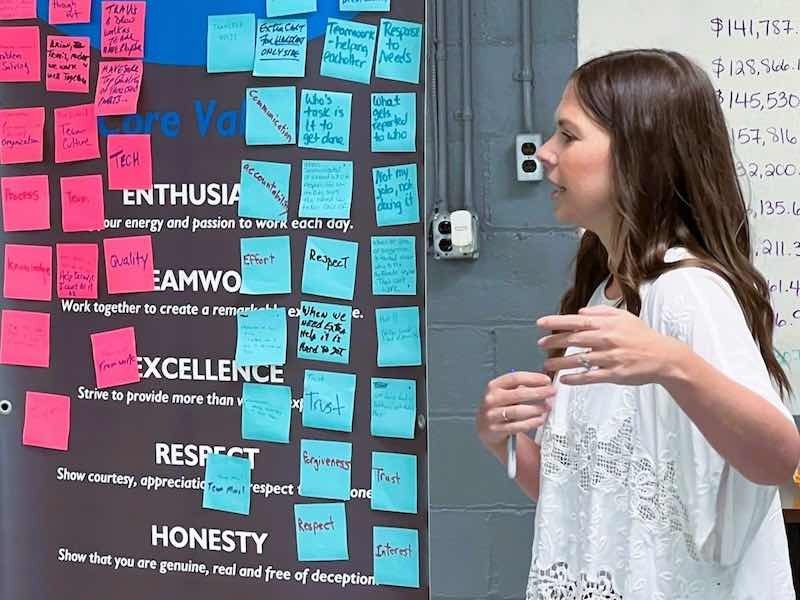 Carly Glista leads the Alpha team through an assessment practice.But in early 2022, Wood and his team were coming off of the worst of what the pandemic brought and everyone was wearing thin. That is when he came across a familiar name in a promotional email about leadership training: Mike Bowles, whom Wood had worked for several years ago before he joined Alpha in 2010.
Carly Glista leads the Alpha team through an assessment practice.But in early 2022, Wood and his team were coming off of the worst of what the pandemic brought and everyone was wearing thin. That is when he came across a familiar name in a promotional email about leadership training: Mike Bowles, whom Wood had worked for several years ago before he joined Alpha in 2010.
Bowles has more than 30 years of experience leading high-performance teams by practicing and setting the table with vulnerability-based trust, allowing for productive conflict, and helping teams create a safe place to feel valued, seen, and known.
Bowles had partnered to form Sonder Leaders with Carly Glista, who brings 14 years of coaching individuals and creating safe spaces for people to process, discover, and grow in an organization. Both were certified Working Genius facilitators, which is a model that helps people discover their natural gifts and thrive in their work and life.
Meanwhile, as the pandemic had taken its toll on many owners and managers, Wood said he was feeling like he had hit a wall as a leader. “I was battling fatigue in a way that I had not experienced before; it was not just physical, but actually mental and emotional. I was struggling to find energy and clarity.”
 Mike BowlesBowles says the first step in the process was having Alpha’s team take the Working Genius assessment, which is 20% personality and 80% productivity. He says people who understand their genius show up to work happier, are more effective, and play well with others.
Mike BowlesBowles says the first step in the process was having Alpha’s team take the Working Genius assessment, which is 20% personality and 80% productivity. He says people who understand their genius show up to work happier, are more effective, and play well with others.
"Business sometimes feels like a family where certain things are avoided. But they still need to be a team that excels because business still needs to happen," Bowles stated. “We use the Working Genius as a tool for self-awareness and others awareness. Each of us is gifted with two geniuses, which are two things that give us joy and drive contentment.”
Wonder, Invention, Discernment, Galvanizing, Enablement, and Tenacity
The Working Genius program uses the Widget concept for where staff members fit in, which is an acronym for Wonder, Invention, Discernment, Galvanizing, Enablement, and Tenacity. Bowles says the goal of the assessment — and the ensuing meetings with a certified facilitator — can transform work for people by helping them:
- Understand why they have been successful or unsuccessful in past endeavors.
- Clarify which types of work give joy and energy and which types are draining and difficult.
- Avoid making unfair and inaccurate judgments about one another’s motivation.
- Alleviate guilt about struggles people have with certain types of work.
- Improve dialogue and directives in team meetings.
- Make quick and concrete adjustments to roles and responsibilities to better tap into one another’s strengths, and avoid one another’s weaknesses.
- Get more done in less time.
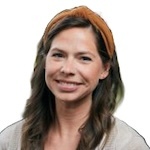 Carly GlistaGlista says the training with the Alpha staff centered around what organizational health looks like in a healthy team culture, and that everything is built on a foundation of trust.
Carly GlistaGlista says the training with the Alpha staff centered around what organizational health looks like in a healthy team culture, and that everything is built on a foundation of trust.
“There are tons of tools out there that you could use to help assess your team and to help build into your team, but ultimately, if you're not building into trust with your team, those tools are just going to be a flash in the pan and might not take you very far,” she says. “We initially went through a four-hour training with their team, and then Greg brought us back to work specifically with their process team who were having some specific issues.”
The goal was to empower Wood and his leadership team to be stronger leaders, to lead in the ways that they want to help work on things that are hard for them.
“It was a way to help dig into the things that they're good at,” Glista says. “Plus, we're helping things come along as this third party, this neutral, objective party who can come and maybe mediate some of that conflict and tension and try to galvanize them, inspire them, and motivate them.”
Giving New Managers the Assistance they Needed
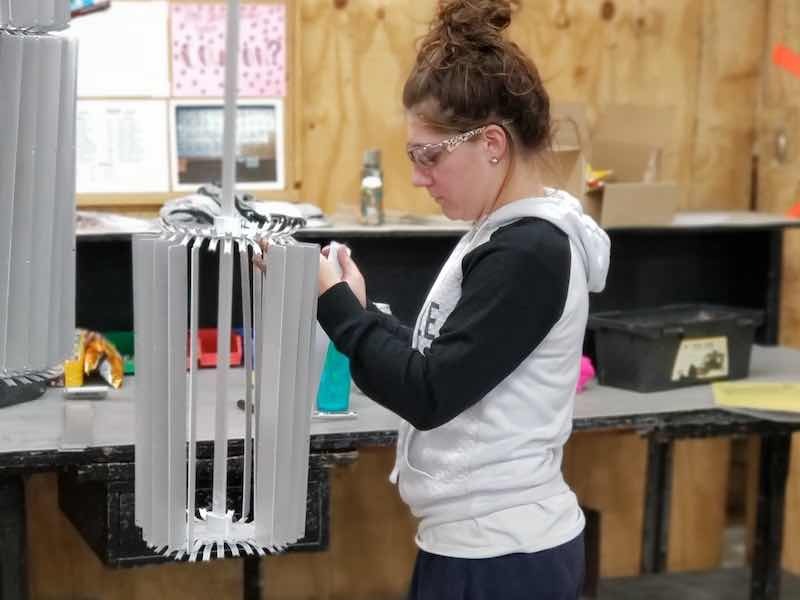 Wood says the assistance that Bowles and Glista gave his team was essential, especially since he had just promoted two of his staff to leadership positions, but didn’t feel like he was available to adequately give his new managers the resources they needed to be successful.
Wood says the assistance that Bowles and Glista gave his team was essential, especially since he had just promoted two of his staff to leadership positions, but didn’t feel like he was available to adequately give his new managers the resources they needed to be successful.
“It was painfully apparent to me that, even though I've provided leadership training for over 27 years, I was out of energy and my focus was off,” Wood says. “I knew I needed outside leadership and perspective to get the best onboarding to this new role for them. I had to let go and ask for help.”
Glista says that Wood was already a big fan of Patrick Lencioni, author of The Ideal Team Player and creator of The 6 Types of Working Genius program. That helped them get the rest of the Alpha team on board quickly.
“Greg was really interested in this tool and how it could just help them do work better in areas that might need to be improved,” she says. “As we got into that training, it began to uncover that there are some underlying things that, if we can deal with these and if we can walk through these together, it will actually help them go a lot further and faster as a company.”
Wood says after the initial training and the follow-up consultations, he and his team noticed improvements that were significant. He had closed Alpha for half a day — at a significant production cost to his busy company — and did some off-site training with his team.
“At the end of the training there was such an overwhelming sense that it was precisely what our team needed, what I needed, and what our company needed to begin growing again and pushing through the fog and malaise that we were experiencing,” he says.
Getting Buy-In From Leadership Team
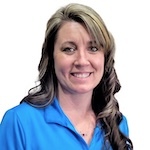 Jamie BarrusJamie Barrus, Vice President at Alpha, says she originally approached the assessment with some trepidation, having been through several training exercises in the past and not seeing that much of a result.
Jamie BarrusJamie Barrus, Vice President at Alpha, says she originally approached the assessment with some trepidation, having been through several training exercises in the past and not seeing that much of a result.
“I had a thought in my head, ‘Another assessment?’” Barrus recalls. “After taking The Working Genius, it was clear to me that this one is not like the rest. This assessment not only tells you about yourself, but it tells you about others on your team, where you work best, and where you dread the work.”
After taking the assessment, Barrus’s first Working Genius is ‘Enablement,’ which means she finds energy and enjoys providing others with encouragement and assistance for their projects and ideas. She agreed with it 100% and says an example would be if a team member is struggling with their work or not really feeling like they want to do it or dread it, she would step in and encourage them about the benefits of the project and how it affects the company by them taking part in it.
Barrus says her second Working Genius is ‘Galvanizing,’ meaning she enjoys rallying people and inspiring them to take action around the project or task. Essentially, she was the cheerleader of the team.
“This suits me perfectly because I like to lift people up and give them a ‘job well done’ or ‘you can do this,’” Barrus says. “It’s the ‘I have faith in you talk.’ I am the one to tell them if they set their mind to do something they will make great achievements, even if they feel they are unable to do it.”
Transparency of Results is Key
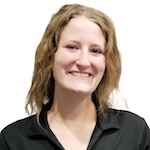 Kaitlin LesserKaitlin Lesser, Alpha’s Office Manager, says that when the results of the assessments were shared with their entire team, the transparency of results united the group.
Kaitlin LesserKaitlin Lesser, Alpha’s Office Manager, says that when the results of the assessments were shared with their entire team, the transparency of results united the group.
“It really allowed our entire team to open up and become vulnerable,” she says. “It also lets us see directly why they feel the way they do in their personal and professional lives.”
Lesser says her Working Genius was Enablement and Tenacity, which showed that she provides the support needed to move solutions into the first stages of implementation — as well as ensure a project is going to have the impact it’s supposed to have — and get completed in a timely manner.
“I was able to understand why I enjoy and thrive in an environment in which I can be organized and plan ahead,” Lesser says. “Although I was able to get it done, when I was placed in a situation where I had to frantically rush to get something done at the last minute, I realized that I do not thrive in an environment like that. If I had to do that each and every day, I would not last long in my position. This is what they call a ‘working frustration.’”
By understanding herself and others better, Lesser says they were able to see an actual “team map” that placed everyone in their determined categories, or geniuses.
“It helped you to realize why some people thrive with certain jobs while others may struggle,” she says. “I believe that this has directly altered our team dynamic and trust as well as made Alpha a stronger company altogether.”
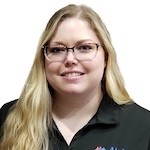 Sara SmithProduction Coordinator Sara Smith says working together on understanding not just her own geniuses and frustrations but everyone else's has been beneficial for their team.
Sara SmithProduction Coordinator Sara Smith says working together on understanding not just her own geniuses and frustrations but everyone else's has been beneficial for their team.
“Before, there was a level of trust missing among some team members,” she says. “While it was not always obvious, it did have an effect on the company. It’s easier to understand why someone does something a certain way when you learn what brings them joy and what doesn’t. It is awesome to see how much stronger our team has become.”
‘Phenomenal Job’ at Organizing the Workload
Alex Elliott, Alpha’s Quality Assurance Manager, says that since the original training and ensuing follow-up sessions, the Alpha team has done “a phenomenal job” at organizing the workload around these parameters. As an Enablement and Tenacity individual, Elliott says his responsibilities have evolved to include tasks that best suit him in this area, such as focusing on the overall quality of the products released from Alpha and the constant communication between customers.
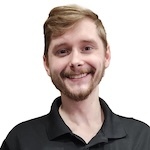 Alex ElliottElliott says the comradery felt across the team as they learned about each other has improved significantly.
Alex ElliottElliott says the comradery felt across the team as they learned about each other has improved significantly.
“Taking some time out of busy days to all sit around and talk together has provided us with the tools to make good friendships out of our coworkers, which is something that is not as common in other places,” he says. “These relationships have transitioned into the average work day, allowing all of us to be able to talk comfortably and freely about work and non-work related topics free of judgment.”
Wood says he attributes the successes of the training to Bowles and Glista, who were able to identify and assess the strengths of his team members and the challenges that they needed to address rather quickly.
“Their ability to ‘read the room’ is uncanny,” Wood says. “Their skills in emotional intelligence really helped facilitate an environment of psychological safety for our team. We were able to map out and make adjustments to responsibilities and tasks so that each team member could really experience more joy and energy in their work.”
Bowles says each of us is gifted with two geniuses, which are two things that give us joy and drive contentment. It's not necessarily about education or experience, but how people have been wired.
“In addition we have two competencies. We might have knowledge around them and do them well,” he says. “But over time, our energy wanes.”
Likewise, two of them are also frustrations, which Bowles says sometimes translates to "I can do the work or task, but if it's in my frustration I will weigh the amount of energy it will cost me, and actually I might avoid or procrastinate doing it."
Finding Joy in Your Work, And Seeing it in Others.
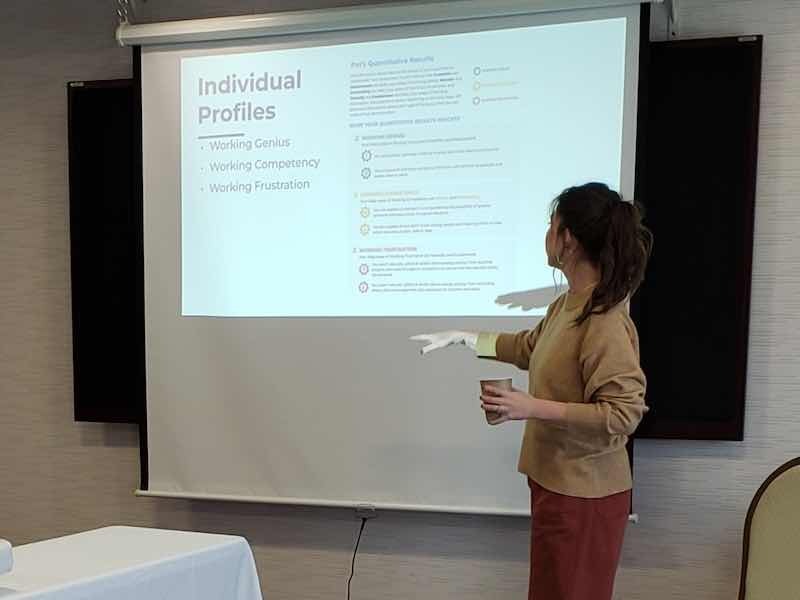 Glista says the training with the Alpha staff centered around what organizational health looks like in a healthy team culture, and that everything is built on a foundation of trust.Bowles and Glista say it comes down to educating yourself in what you find joy in, but also about seeing it in others.
Glista says the training with the Alpha staff centered around what organizational health looks like in a healthy team culture, and that everything is built on a foundation of trust.Bowles and Glista say it comes down to educating yourself in what you find joy in, but also about seeing it in others.
As an example, they saw a situation that arose when a member of the process team would collect carts away from the production team before they were ready for their cart to disappear, which sometimes led to confusion and finger-pointing.
“We were able to go back and, instead of having a conversation that was about the employee and ask why, we were able to use the Work Genius terminology and point out that he has ‘Tenacity,’” Bowles says. “You might be ready to do that with the cart, but the team is not yet ready to do that, and it's really not time to do it.”
Glista says working with the team members on understanding how others work helps avoid conflict and build trust in each other as they communicate on the shop floor or in the offices.
“We've found it's incredibly helpful to take that personal sting out of it,” she says. “It doesn't have to be about the person or their personality; this tool is about 20% personality and 80% productivity. This is really about how the work is done. So then I'm able to say, ‘You're in this stage of work right now and we're not ready for that yet.’”
Barrus says she has learned a lot about herself and her team in the training, and it will all benefit Alpha Metal Finishing as a company and benefit the individual employees.
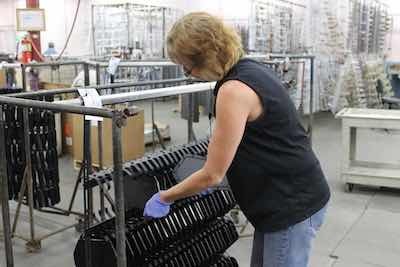 “I learned that not only did we have team members working against our goals and achievements at times, but also against their own,” she says. “We want our team to thrive as much as possible in everything they are doing personally and professionally. If they are not, we are not leading them well.”
“I learned that not only did we have team members working against our goals and achievements at times, but also against their own,” she says. “We want our team to thrive as much as possible in everything they are doing personally and professionally. If they are not, we are not leading them well.”
Lesser says the training has shown her how to best interact with team members not only in their jobs but on a personal level as well, where their strengths can be applied.
“It can remind you where an employee might experience ‘working frustrations,’ in which you can then directly alter the environment to better their overall performance,” she says. “If an employee gets joy from taking challenges and generating solutions, then we have learned how to place them in jobs that best suit their needs.”
Wood says the net effect from the training at Alpha Metal Finishing is that they are more efficient, have more energy in what they are doing, and have created stability for their team. And, their customers have noticed too.
“Mike and Carly have given us clarity and a better understanding of how to encourage and direct team members in their areas of energy and joy related to responsibilities and tasks, as opposed to placing them in situations that drain and frustrate them. We are able to quickly adapt to changes and solve problems that come up without a loss of enthusiasm or momentum,” he says. “We really feel we are moving forward on the same page as a company in our vision and strategy. I am grateful to Mike and Carly for pouring into our team.”
Visit www.alphametal.com and www.sonderleaders.com.




